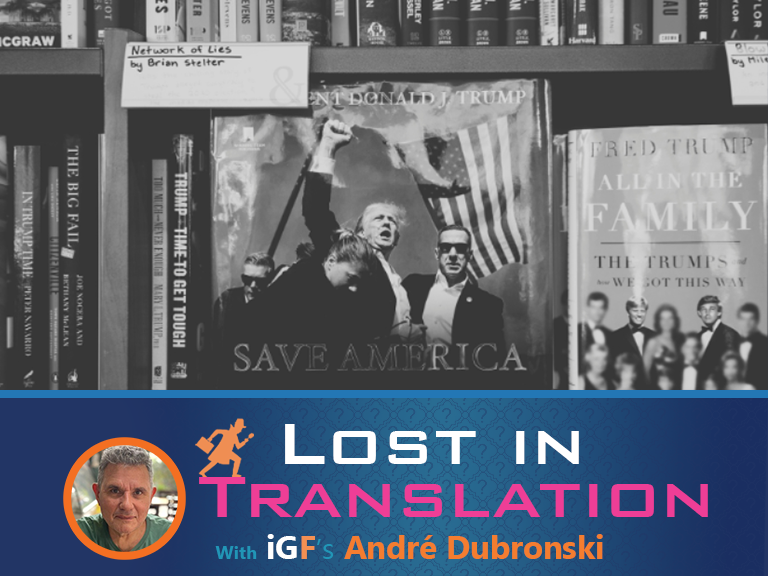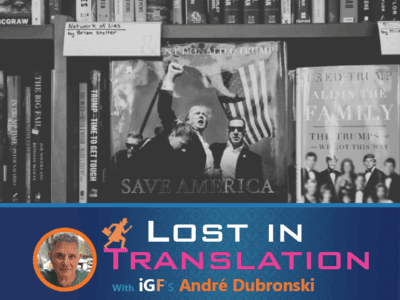Never has the ancient, back-handed Chinese rejoinder, I hope you live in “interesting” times, been more prescient. For, under the stewardship of Donald J. Trump, these are indeed times of danger, uncertainty and, to be fair, opportunity — especially for players in booming prediction markets.
Ready or not, the gambling industry–and iGaming and sports betting in particular–is now teetering on the edge of tumult, if not revolution, and facing the greatest money-driven change since Daily Fantasy Sports, DFS 1.0, pioneered by current gaming leaders DraftKings and FanDuel, upended the world of American sports betting some 15-years-ago.
That process, begun by FanDuel in 2009 and DraftKings three-years-later, was supercharged by the repeal of the 1992 Professional and Amateur Sports Protection Act (PASPA) by the Supreme Court in 2018.
Today over half the states in the USA have legalised and regulated sports betting. The business is, conservatively, worth around US$14 billion a year (£10.4bn).
Power
Legal 360 iGaming, contending with the entrenched power of traditional bricks-and-mortar casino-resorts, is finding it more difficult to break-on-through; with only seven states to date–New Jersey, Delaware, West Virginia, Pennsylvania, Michigan, Connecticut and Rhode Island–allowing the full panoply of online gambling.
And this until the recent U.S. presidential election seemed to be the rub of it: the onward inexorable march of legal, regulated sports betting, with iCasino trailing in its wake.

But now American gambling has a new event horizon: hot, booming prediction markets, sanctioned and supported by the seemingly all-powerful, deal-making brand of Trump and Sons.
Subverted
The duopoly of FanDuel and DraftKings, who between them control around 80 percent of the market, and a host of lesser online sportsbooks, are being challenged by the new prediction market sites of Kalshi, Robinhood, Polymarket, et al, all players who have “subverted” gambling by technically not taking “bets” but instead “trades” on “outcomes”.
As such, the prediction markets say they not subject to gambling laws but to the federal Commodity Futures Trading Commission (CFTC), which regulates the U.S. derivatives markets.
Manhattan-based Kalshi, founded in 2018 by MIT alumni Tarek Mansour, its current CEO, and Luana Lopes Lara, CCO, is the most prominent prediction market operator.
It gained wide fame in November last year by correctly calling Trump’s presidential victory, and it is already deeply embedded in the Trump Magasphere; although Mansour insists that he is personally apolitical.
Maverick
This hasn’t prevented Mansour from employing the president’s son and namesake Donald J. Trump Jnr. as a special adviser; while one of his board members, Brian Quintenz, is the Trump nominee to become the new chair of the CFTC.
Despite its self-regard as a maverick and disruptor, Kalshi has further deep ties to the powers-that-be. For example, billionaire investor Charles Schwab, whose grand-daughter Samantha Schwab is deputy chief of staff at the U.S. Treasury, is one of the company’s major investors.
Kalshi is facing a barrage of lawsuits and legal challenges in a number of states. But everywhere it is winning.
After a long-standing dispute, last year the CFTC caved and decided to lift injunctions against Kalshi’s right to trade.
And recently Kalshi also nixed legal challenges brought by the major gambling states of Nevada and New Jersey.
Papal Conclaves
Prediction sites allow punters to stake money on the outcome of almost anything from political elections, papal conclaves, superbowls, even duck races. Rather than place “bets”, punters buy or sell short term “contracts” based on their prediction of an event’s outcome. The prediction market website makes its money by taking a fee on each contract placed.
Many gambling industry stakeholders and experts believe that prediction markets, because they are not subject to the same rules and tax regimes, pose an existential threat to iGaming and online sports betting sites.
“It is not like anything we have seen in a long time. It is unique . [And] it could change how gambling companies operate in the U.S. forever. It just wasn’t on their radar,” said a top gambling analyst at forensic auditors and accountants KPMG in New York.
Surge
Following its headline-grabbing prediction of Trump’s victory, Kalshi continued its surge by taking an estimated US$27 million (£19.94m) in “trades” on the outcome of February’s Super Bowl L1X (59), and then a massive step-up to US$500 million (£369.49m) in bets on college basketball’s so-called “March Madness” championships.

“This year our growth has been incredible,” asserted Tarek Mansour. “I believe we have the potential to build the largest financial market ever.”
Opposition to Kalshi and other prediction markets is now growing among the Indian Tribal gaming community, who see them as a threat to the traditional gambling compacts between states and their Native American communities.
“We’ve worked with experts to understand the difference between event markets and prediction markets. Rebranding one as the other doesn’t change the fundamentals,” Tribal gambling leader James Siva told iGamingFuture last week.
“And we’ve seen the way courts in states like Nevada and New Jersey have already kind of given Kalshi the greenlight with very little pushback. It’s discouraging, but not the end of the matter.
“Donald Trump Jr. is on Kalshi’s board (sic). I think that connection is too close to ignore,” asserted Siva, Chair of the California Nations Indian Gaming Association (CNIGA).
iGaming Bros
Meantime, DraftKings, FanDuel owner Flutter and other U.S. online sports betting heavy-hitters are considering their options of how to deal with the new betting bros on the block.
One outcome seems certain.
If you can’t beat ‘em, then join ‘em. And set up your own predictions market site, a move being seriously considered by Entain-MGM Resorts International joint-venture BetMGM, one highly-placed source told iGF.
With Kalshi already worth in excess of US$1 billion (£739.44m), the books need to react fast.
Otherwise the new iGaming bros, fuelled by Trump’s political gold dust, will soon be out of sight.
That’s my prediction. Care to bet on it?




